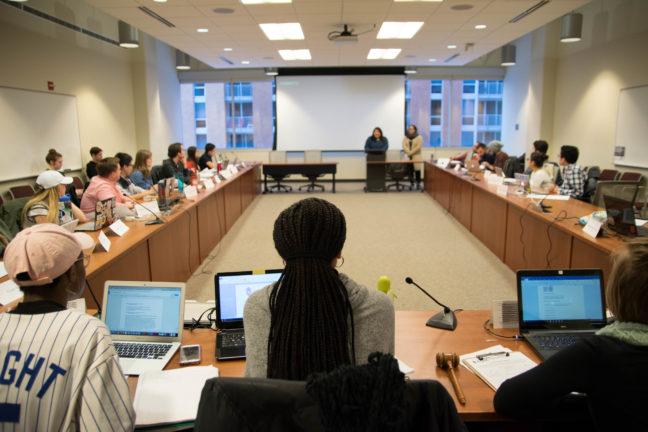Associated Students of Madison held spring elections earlier this month, and only 6 percent of eligible student voters participated in the election. ASM began reporting voter turnout percentages online in 2007, and, according to The Badger Herald, this spring election yielded “the lowest voter turnout in recent history.”
While voter turnout has been declining for years, there are exceptions to consistently low student participation. Spikes in voter turnout occur when larger projects appear on the ballot. For example, the Natatorium Renovation Project and naming of Union South in 2010 yielded 34.5 percent student participation and the Recreational Sports Facility Referendum in 2014 yielded a similar 34.4 percent student participation in the election.
These spikes in voter turnout show students are willing to engage in ASM elections, but only when the results will make a direct decision regarding a big-picture project that will have long-term implications for the university as well as student life. But dominated by candidates running for specific seats, voter turnout was the lowest it has ever been during the 2018 spring election. Students do not appear to find these types of elections as important or as personally relevant as those posing questions about large projects. Maybe they should, given the amount of influence ASM representatives have in student life on the University of Wisconsin campus.
ASM is responsible for the creation of 24-hour libraries, mandatory pre-exam study days and caps on tuition increases. Given that many students take advantage these benefits, ASM has made substantial contributions to student life on campus. If these are the sorts of things ASM can offer the student body, why don’t voters give equal weight to each election with the hope ASM can expand on what they’ve already provided?
ASM spring election renders UW’s lowest voter turnout in recent history
The answer may lie in lack of outreach to students on ASM’s part. Twenty-four-hour libraries, pre-exam study days and tuition caps were created as a result of ASM direct action campaigns. If students are unaware that ASM representatives were responsible for fighting to provide them these benefits, then “first name last name for College of Letters and Science Representative” written in chalk on Bascom Hill cannot effectively mobilize voters and facilitate higher turnouts.
Candidates write their names all over campus sidewalks and use Facebook to create campaign pages, post in class groups and communicate their plans for ASM should they be elected. Students are bombarded with ASM emails reminding them to vote. While these techniques may be familiar to the UW student body, consistently low voter turnout shows these outreach techniques to increase awareness for individual candidates have not inspired voters to the same degree as, for example, the naming of Union South.
Despite the ineffectiveness of these outreach strategies, ASM has made them a habit. Student Election Committee Chair Kate Wehrman said: “6 percent voter turnout is on par with past voter turnout,” and that “it’s been a great election cycle.” While it may have been a great election in comparison to the past ten years, it is time for ASM to set a much higher standard for itself by making greater efforts to show students why it’s so important to participate in each election, not only the ones dedicated to large university projects.
UW students confront ASM council members over privately funded trip to Israel
ASM must dedicate the 2018-19 academic year to student outreach and make a point of communicating to students what they have been able to give them in the past, as well as what more they can provide going forward. ASM representatives can fight for and win benefits like 24-hour libraries, pre-exam study days, tuition caps and bus passes for the student body — contributions that will, in time, become the new norm on campus.
Spikes in voter turnout demonstrate both the willingness of students to participate as well as levels of participation that ASM should strive for every election cycle. It is now up to ASM to do a better job of showing voters how elections for individual candidates — not just direct questions about large projects — can make a substantial difference in their lives and set higher goals for voter turnout moving forward.
Juliet Dupont ([email protected]) is a freshman intending to major in political science and journalism.














